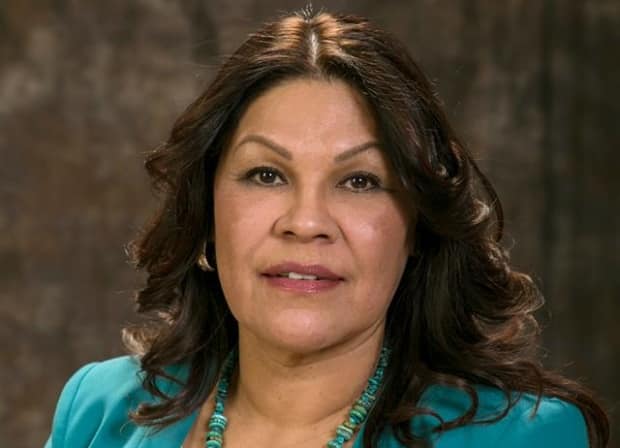'It's about time' to update citizenship guide, Assembly of First Nations Alberta chief says

Assembly of First Nations Alberta regional chief Marlene Poitras hopes newcomers to Canada will learn more about Indigenous history and culture once the federal government updates its citizenship guide.
The 68-page document, Discover Canada: The Rights and Responsibilities of Citizenship, prepares newcomers for the citizenship test. It has not been updated since 2012.
In its 93rd call to action, the Truth and Reconciliation Commission called for revising the guide and citizenship test to "reflect a more inclusive history," including material about treaties and residential schools.
Residential schools are mentioned briefly in the current guide.
"The schools were poorly funded and inflicted hardship on the students; some were physically abused," one sentence reads.
The Liberal government promised in 2016 that changes to the guide were coming but they have not yet materialized.
"It's about time — it should have happened a long time ago," Poitras said Wednesday in an interview with CBC Edmonton's Radio Active.
Beyond consultations for the guide itself, Poitras said she has recommended that elders participate in the ceremonies for new citizens.
"We have been hard at work over the past few years crafting a new citizenship guide that reflects contemporary Canada," said Immigration, Refugees and Citizenship Canada spokesperson Nancy Caron in an emailed statement.
Caron said the process has included "extensive collaboration " with leaders of Indigenous organizations as well as historians, academics, parliamentarians and groups representing racialized communities, women, francophones, the LGBTQ community and people with disabilities.
The ministry hopes to share the new guide with Canadians later this year, Caron said.
"From what I understand, from talking to some people who know this better than I do, the new guide will have more extensive coverage of Indigenous history," said Andrew Griffith, former director general of citizenship and multiculturalism for the IRCC.
On Thursday, the Senate passed Bill C-8, which would revise the citizenship oath newcomers take to include mention of treaties with Indigenous peoples.
"While getting the oath changed is really important, it will really be important to see how the next version of the guide — which apparently is fairly advanced — captures these issues," Griffith said.

